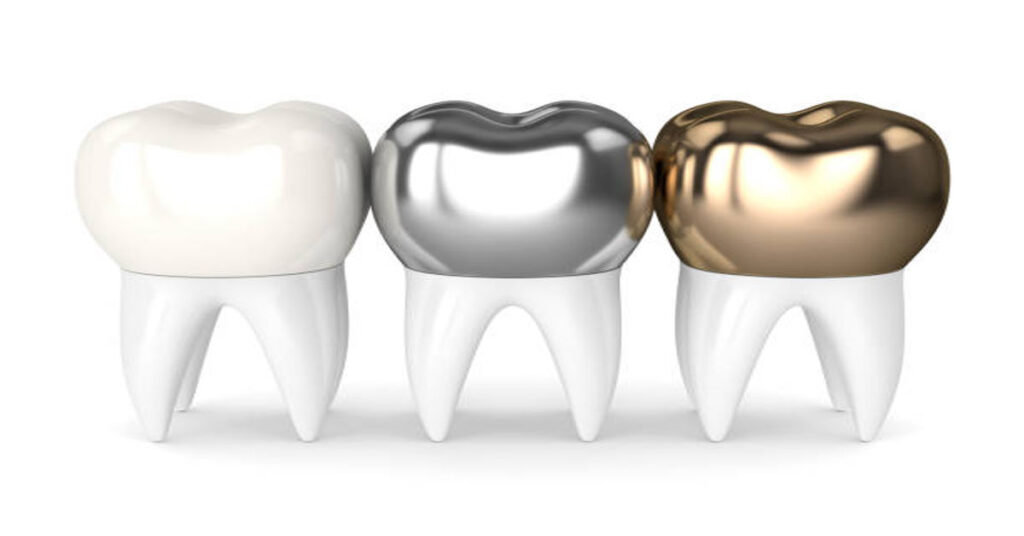Freddie Mercury, the legendary frontman of Queen, was known for his electrifying performances, four-octave voice, and magnetic stage presence. Yet, one of the most discussed aspects of his appearance — even decades after his passing — remains his distinctive teeth. Fans, dental experts, and biographers alike have been fascinated by the unique structure of his mouth, often linking it to his extraordinary vocal ability.
This article explores in depth the anatomy, science, and psychology surrounding Freddie Mercury’s teeth — separating fact from myth — and analyzing how they contributed to his public persona and possibly even his voice.
1. Introduction: The Icon and His Distinctive Smile
Freddie Mercury was born Farrokh Bulsara in Zanzibar in 1946. From his early years, his smile stood out — not because it was traditionally perfect, but because it was unusual. His upper teeth appeared to protrude forward, giving his mouth a distinctive look that became part of his identity.
Unlike many celebrities, Freddie never underwent dental correction, even when fame gave him every opportunity to do so. He was self-conscious about it privately, but he also feared changing his teeth might somehow alter his singing ability — a belief that would become part of his enduring legend.
2. The Anatomy of Freddie Mercury’s Teeth
Freddie Mercury’s teeth were not merely slightly misaligned — they displayed a noticeable dental overjet and overcrowding caused by the presence of extra teeth. Dentists call this condition supernumerary dentition, meaning more teeth than the standard human set.
Table 1: Overview of Freddie Mercury’s Dental Structure
| Feature | Description | Effect |
|---|---|---|
| Extra Teeth (Supernumerary) | Freddie reportedly had four extra teeth in his upper jaw. | Pushed front teeth forward, creating a noticeable overbite. |
| Overbite | Upper teeth extended beyond the lower lip line. | Altered shape of mouth and smile. |
| Dental Crowding | Teeth positioned too closely together. | Caused uneven tooth alignment. |
| Jaw Shape | Narrow maxillary arch. | Led to forward thrusting of front teeth. |
While most adults have 32 teeth, Freddie had 36 due to four additional incisors behind his front ones. These pushed his front teeth forward, giving him the recognizable “buck-toothed” appearance.
3. Why Freddie Never Fixed His Teeth
Freddie Mercury’s decision not to fix his teeth has intrigued fans and professionals alike. He often hid his teeth behind his hand during interviews, but he never chose to correct them — even when Queen became one of the biggest rock bands on Earth.
There are several reasons for this decision:
- Fear of Altering His Voice:
Freddie believed his prominent upper jaw gave his vocal cords and oral resonance unique space. He once joked that fixing his teeth might “ruin” his voice — and given how extraordinary it was, he wasn’t willing to take that risk. - Financial Constraints (Early Life):
During his childhood and youth, orthodontic correction was expensive, and his family wasn’t wealthy. By the time he could afford it, his teeth had already become part of his identity. - Embracing Uniqueness:
In a world obsessed with perfection, Freddie’s refusal to conform symbolized authenticity. His “imperfection” became a mark of individuality — something fans found relatable and inspiring.
4. Dental Science: Could His Teeth Have Influenced His Voice?
The most enduring myth surrounding Freddie Mercury’s teeth is that they made his voice extraordinary. While there’s no direct scientific proof that his overbite created his vocal power, there are plausible explanations for how his oral structure could have enhanced certain resonant qualities.
Understanding Vocal Resonance
Vocal tone depends on several physical factors:
- The vocal cords produce sound in the larynx.
- The oral cavity, nasal passages, and teeth positioning shape and amplify that sound.
In Freddie’s case, his forward-angled upper teeth and spacious oral cavity may have contributed to a slightly larger resonating chamber, allowing for:
- Enhanced harmonic richness
- A broader range of vowel articulation
- Slightly brighter resonance in high notes
Table 2: Vocal Factors and Possible Influence of Dental Structure
| Vocal Feature | Typical Source | Possible Role of Freddie’s Teeth |
|---|---|---|
| Resonance | Shape and volume of mouth and nasal cavities | Overbite may have enlarged oral space. |
| Projection | Airflow and tongue positioning | Altered jaw structure could change airflow dynamics. |
| Articulation | Tongue, lips, and teeth coordination | Irregular teeth might slightly alter consonant precision, giving a distinctive diction. |
| Tone Color | Interaction of formants | Forward-set teeth may have shifted certain harmonic frequencies. |
Though speculative, these physical variations could indeed have influenced his iconic tone — the same way a unique instrument’s shape changes its sound.
5. The Psychological Dimension: Confidence and Vulnerability
Freddie’s teeth were both his insecurity and his trademark.
He often covered his mouth in interviews, feeling embarrassed when cameras zoomed in. However, on stage, his shyness vanished — his confidence transcended physical appearance.
This duality became part of his artistry:
- Off-stage Freddie: Reserved, shy, aware of his imperfections.
- On-stage Freddie: Unstoppable, flamboyant, untouchable.
His transformation symbolized the liberation that art and performance brought him. By refusing to fix his teeth, he unintentionally sent a message about self-acceptance and creative freedom.
6. How His Teeth Affected His Image in the Media
In the image-driven music industry of the 1970s and 1980s, looks mattered. Many pop and rock stars underwent dental corrections or cosmetic procedures. Freddie, however, became an exception.
Media coverage often mentioned his teeth, sometimes mockingly. Yet, Queen’s overwhelming success and his charisma made appearance secondary to talent. His image became proof that charisma transcends aesthetics.
Interestingly, fans grew to love his unique smile — it symbolized authenticity and courage in a polished, artificial world.
7. The Medical Viewpoint: Understanding Supernumerary Teeth
Supernumerary teeth occur in about 1–4% of the population. They can develop due to genetic factors or irregularities in dental tissue formation.
Types of Supernumerary Teeth
| Type | Location | Example |
|---|---|---|
| Mesiodens | Between central incisors | Common type, causes spacing issues |
| Paramolar | Beside molars | May go unnoticed |
| Distomolar | Behind third molar (wisdom tooth) | Rare |
| Supplemental | Resembles a normal tooth | May crowd normal dentition |
In Freddie’s case, the extra teeth likely fell into the supplemental category in the upper jaw, pushing others forward.
Common Problems Caused by Supernumerary Teeth
- Misalignment and crowding
- Overlapping teeth
- Speech difficulties (in some cases)
- Risk of gum irritation or decay
However, despite these potential issues, Freddie’s diction and singing ability remained exceptional — proof of how he adapted to his anatomy.
8. Freddie’s Teeth in Popular Culture
Freddie Mercury’s teeth have achieved almost mythical status in pop culture. Fans often mention them alongside his microphone stand and mustache as part of his instantly recognizable look.
Examples of Cultural References:
- “Bohemian Rhapsody” (2018) – Rami Malek’s portrayal included dental prosthetics to replicate Freddie’s teeth. Malek stated that the prosthetics initially felt awkward but helped him “understand Freddie’s physicality and confidence.”
- Fan Art and Memorabilia – Many caricatures highlight his teeth lovingly, symbolizing authenticity over perfection.
- Internet Memes and Documentaries – His dental structure is often used humorously but respectfully as a testament to individuality.
9. Comparing Freddie’s Teeth to Typical Overbite Cases
| Feature | Typical Overbite | Freddie Mercury’s Condition |
|---|---|---|
| Number of Extra Teeth | None or one | Four (supernumerary) |
| Visibility | Mild projection | Prominent, noticeable overjet |
| Effect on Speech | Sometimes minor lisp | None notable in Freddie |
| Effect on Aesthetics | Often corrected | Became a signature look |
| Effect on Self-Image | Often causes self-consciousness | Mixed: shyness off-stage, pride on-stage |
Freddie’s case stands out because he not only coped with the condition but turned it into a defining feature of his personality.
10. Lessons About Self-Image and Authenticity
Freddie Mercury’s teeth represent more than a medical anomaly — they embody a philosophy: true artistry lies in embracing imperfections.
In a society where appearance often dictates confidence, Freddie proved that individuality has its own beauty. His story teaches that:
- Talent overshadows physical imperfection.
- Confidence is cultivated through acceptance, not correction.
- Uniqueness often drives creativity.
Even today, his smile — imperfect yet unforgettable — remains a symbol of self-empowerment.
11. Did Freddie Ever Consider Fixing His Teeth?
According to close friends and interviews, Freddie was aware of how his teeth looked. However, he consistently refused dental intervention. He was quoted saying that he didn’t want to “mess with nature.”
His reasoning was partly superstition, partly science, and partly identity. His mouth had produced one of the most iconic voices in music — why risk changing its mechanics?
It’s unclear whether orthodontic correction would have changed his resonance, but his intuition to preserve his natural setup proved justified artistically.
12. How His Teeth Influenced the Biopic “Bohemian Rhapsody”
In preparing for the film, actor Rami Malek was fitted with large prosthetic teeth based on dental scans and photographs of Mercury. Malek described the experience as transformative, noting that:
- The prosthetics altered his speech pattern, forcing him to adjust his mouth movement.
- They made him understand how Freddie’s overbite might have influenced his onstage expressions — exaggerated lip motions, wide vowel sounds, and powerful projection.
This attention to detail emphasized how deeply Mercury’s teeth were intertwined with his voice, personality, and physical presence.
13. Dental Health and Maintenance
Despite his crowded teeth, Freddie’s dental health remained relatively good throughout his life. He maintained strong oral hygiene, as reported by acquaintances and stylists. Crowded teeth are typically harder to clean, increasing the risk of plaque buildup and decay. However, Freddie’s rigorous lifestyle and diet control likely mitigated major dental issues.
Common Dental Care Tips for Crowded Teeth
| Challenge | Solution |
|---|---|
| Plaque accumulation | Use interdental brushes and floss daily |
| Gum irritation | Regular dental cleaning |
| Difficulty brushing | Use electric toothbrush for better reach |
| Aesthetic concern | Orthodontic monitoring or cosmetic dentistry |
Even though he didn’t opt for correction, his care routine kept his teeth healthy enough to support intense singing performances.
14. Myths and Misconceptions About Freddie Mercury’s Teeth
| Myth | Reality |
|---|---|
| His teeth gave him four octaves of range. | Range depends on vocal cords and technique, not teeth alone. |
| He was ashamed of his teeth. | He was self-conscious, but he accepted them as part of his identity. |
| His teeth caused speech problems. | He spoke and sang fluently with unique articulation. |
| He never smiled because of his teeth. | He often smiled openly, especially on stage. |
While myths add charm to his legend, the truth is simpler — Freddie’s greatness came from his artistry, not anatomy alone.
15. The Symbolism of His Smile in Modern Culture
Today, Freddie Mercury’s teeth represent authenticity in an image-driven world. Many fans view his smile as a rejection of perfectionist ideals. In an era where cosmetic enhancement is common, his example reminds us that:
- Real charm lies in personality and passion.
- Individual features can become strengths when embraced with confidence.
Freddie’s teeth, once a source of insecurity, have become an emblem of fearless individuality — a smile that changed how the world viewed imperfection.
16. Conclusion: The Legacy of an Imperfect Smile
Freddie Mercury’s teeth tell a story of biology, psychology, and art intertwined. They weren’t just a set of misaligned incisors — they were part of the instrument that helped produce timeless music.
His refusal to alter them shows that true greatness isn’t about fitting into a mold but about redefining it. His teeth symbolized both vulnerability and confidence — two qualities that made him human yet extraordinary.
In the end, Freddie’s voice, not his teeth, defined his legacy — but the two will forever be linked as symbols of authenticity, courage, and the beauty of imperfection.
🗂️ FAQs
1. Did Freddie Mercury really have extra teeth?
Yes, he reportedly had four extra teeth in his upper jaw, which pushed his front teeth forward, creating his well-known overbite.
2. Did his teeth make his voice better?
There’s no scientific proof, but his unique dental and jaw structure might have slightly enhanced vocal resonance.
3. Why didn’t Freddie Mercury fix his teeth?
He feared that altering his teeth could change his singing voice. He also grew to accept them as part of his image.
4. Were his teeth a genetic condition?
Likely yes — supernumerary teeth can be hereditary or result from early developmental variations.
5. How are Freddie’s teeth remembered today?
They’ve become a symbol of individuality and authenticity — proof that imperfections can define, not diminish, greatness.







